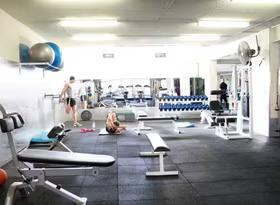The return of the “W”?
In my travels around the country over the last month visiting and presenting to clients, it's been difficult to find people who are happy about business conditions at the moment. There were small pockets of optimism in areas such as the forestry industry or Southland's dairy sector. But the bulk of businesspeople are hanging tough: fighting to keep costs down, trying to identify growth opportunities in a stagnant market, and hoping that a more pronounced economic recovery materialises in 2011.
"Hoping" is the operative word this time last year, people seemed more certain about the prospect of a recovery. The National Bank's Business Outlook showed business confidence between September and November 2009 holding in the 40-50% range. Although the latest figures for November show confidence at 33%, it had dipped as low as 14% in September.
Realistically, confidence levels were prematurely high last year given the significance of the global financial crisis and the obvious issues of debt levels and property values that needed to be worked through. Our forecasts from late last year expected lacklustre growth to persist until the middle of 2010. But why does the recovery still seem to be in the balance even now?
One of the keys is that people remain unsure about their own financial wellbeing. Evidence that house prices are starting to slide again will have homeowners nervous. Property owners suffered a 10% drop in values between mid-2007 and early 2009, and further declines will again hit households' balance sheets.
Furthermore, over the last 18 months the unemployment rate has oscillated between 6.0% and 7.1%. Such variable numbers undermine people's sense of job or income security and contribute to a cautious approach to spending.
The latest GDP data shows that the economy is still 1.5%smaller than it was before the recession began at the end of 2007. Given that the population has grown 2.7% during the same period, it is unsurprising that we all feel significantly worse off. On a per-capita basis, activity is still more than 4% below pre-recession levels.
It could be late 2011 before the spending power of the average income matches the levels reached in 2007. The length and depth of the current downturn contrasts with the Asian crisis of the late-1990s, when per-capita GDP surpassed its previous peaks just two years after the recession began.
The upshot of the prolonged period of slow growth is that most businesses profit margins remain tight due to the lack of demand. For firms that have spent more than two years grappling with reduced revenue, the persistent squeeze on profits is creating significant cash flow issues.
Over the last two years, small and medium-sized operators have made use of whatever sources of cash they could find: reserves they may have built up during the previous period of strong growth, lines of credit that remained available despite the financial crisis, or capital injections from owners. For small owner-operators, there's always the possibility of topping up the mortgage or downsizing the family home to access more capital and keep the business afloat.
I've picked up widespread concern that the ability of some firms to keep "getting by" is coming to an end. From sources as diverse as people in the banking sector, transport operators, construction sector executives, accountants, farmers, and the IRD, there is a real sense that the next three months are pivotal for the New Zealand economy. A pick-up in revenue will help firms to fight on through into 2011. But weak demand conditions during what is traditionally a quiet period in January could see the cash run out and lead to a renewed wave of business failures.
Assuming the recent lift in business confidence has some substance, it may have occurred just in time. Our own sense of the economy's performance is that conditions are improving from the soft patch that occurred during the middle of the year.
Admittedly, there are still risks to the immediate economic outlook. Growth in developed countries around the globe remains fragile. Worries about dry weather in some parts of New Zealand, such as Northland and Waikato, have also heightened the risk of below-par growth in the first part of 2011.
But I'm more confident about the economy's prospects a year from now than I was in late 2009. Export prices have lifted back towards record highs, and held up. The rebuilding required following Canterbury's earthquake will generate significant economic activity. And the Rugby World Cup will provide a much-needed shot in the arm for the retail and hospitality sectors. If businesses can get through the next few months, the light at the end of the tunnel is starting to look a little brighter.



